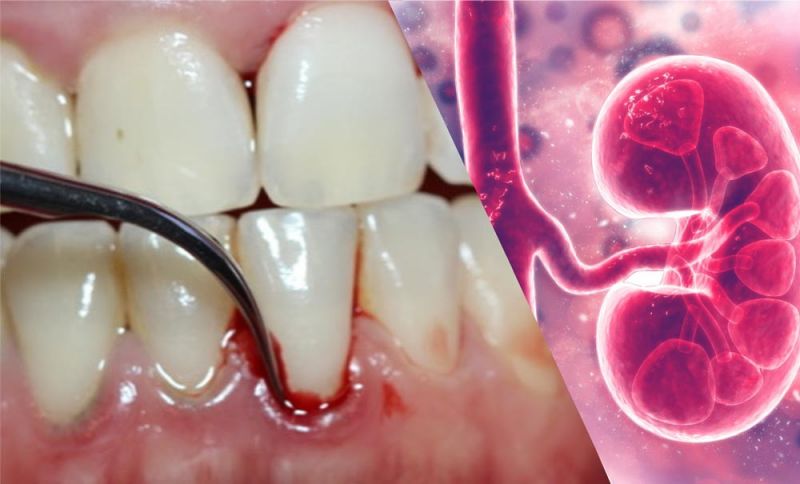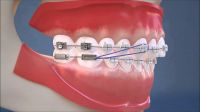
When we talk about the association of systemic diseases with periodontitis, diabetes, which is currently the subject of special attention from CPAM with special management of periodontal assessment for the relevant patients, is logically necessary as a natural candidate.
However, other chronic diseases also have a strong systemic dimension that can influence the prevalence, pathogenetic mechanisms, and treatment methods of periodontal diseases. The American-English authors of the published study inform us that chronic kidney disease (CKD) affects 9.1% of the world's population and that more than one person out of 1,000 is diagnosed with this disease at very late stages of the disease.
Thus, every dental surgeon is statistically certain to encounter this pathology in at least one of his patients. In general, any chronic inflammation can be associated with CRF, which leads to a multisystem pathology, mainly characterized by the retention of toxic metabolites, in particular urea, in the blood with numerous consequences for cellular functions, osteogenesis, the immune system and appetite, among others. It is known that cats, which are particularly susceptible to kidney failure, have ulcers in the mouth at the very late stages of the disease, associated with too high a concentration of urea in the blood.
Is it possible that CKD in humans also affects the balance of the oral cavity and periodontal disease? In general, any chronic inflammation can be associated with CRF, which leads to a multisystem pathology, mainly characterized by the retention of toxic metabolites, in particular urea, in the blood with numerous consequences for cellular functions, osteogenesis, the immune system and appetite, among others. It is known that cats, which are particularly susceptible to kidney failure, have ulcers in the mouth at the very late stages of the disease, associated with too high a concentration of urea in the blood. Is it possible that CKD in humans also affects the balance of the oral cavity and periodontal disease?



